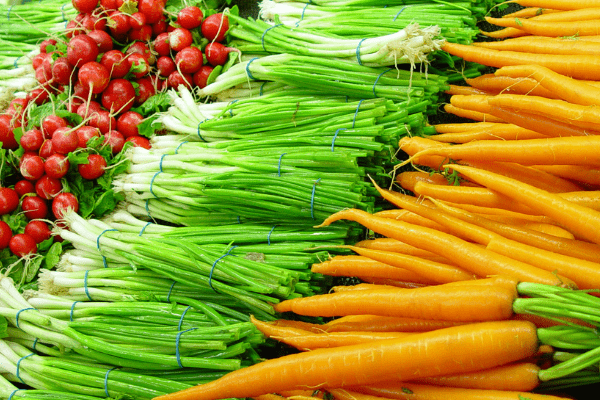The food industry consists of many rungs, meaning there are a wealth of business opportunities. Some are obvious, such as growing food crops, manufacturing finished products, marketing a food or beverage brand, or operating a retail outlet or restaurant.
But several other key steps in the supply chain are not as visible, at least not to the average consumer. Yet they play a vital role in the food ecosystem and can present solid opportunities for entrepreneurs, either to make money or to address social issues such as food insecurity or racial disparities. In some cases, they can facilitate both.
One such role is that of a regional food hub. Whether structured as a for-profit business or a nonprofit organization, a food hub manages the aggregation, distribution and marketing of source-identified food products primarily from local and regional producers. The goal is to strengthen small producers’ ability to satisfy wholesale, retail and institutional demand.
Food hubs have been getting more and more attention in recent years, as communities seek to further local food initiatives by building up scale. The success of farmers markets, community-supported agriculture and direct farm-to-consumer sales—especially in the wake of the COVID-19 pandemic—has proven that consumers want local foods. The problem is many small producers don’t have the resources, bandwidth or infrastructure to serve larger customers like retail chains, schools, foodservice or food banks, making it hard for them to stay afloat.
But with food hubs stepping in to aggregate goods from multiple producers, and oftentimes offering on-farm technical assistance, inventory storage and marketing, small producers can scale their enterprises. These efforts often benefit end consumers too, so a food hub’s mission may be twofold. For instance, many have a farm-to-school focus that supports not only local producers, but also nourishes children by delivering local products such as fruits and vegetables to school cafeterias.
A food hub’s mission could even be threefold. That’s the case for The Good Acre in Greater St. Paul, Minnesota. The nonprofit was built upon farm-to-school wholesale, but when the pandemic shuttered schools and increased food insecurity throughout the Twin Cities, it expanded into hunger relief. As discussed in the latest Edible-Alpha® podcast, The Good Acre launched a program to purchase produce from farmers of color and donate it to the families of three Hmong schools. The food hub also worked out contracts between the farmers and the major regional food bank. And with that, The Good Acre served three missions at once: uplifting diverse growers, aiding schools and feeding community members in need.
Food hubs are clearly noble ventures and represent meaningful work. But because they are a relatively newer concept and don’t always generate revenue, they can be tricky to get up and running and keep in operation. That’s why FFI has gotten so involved in this space, working to enhance their financial viability and their community impact.
Seeing the crucial role food hubs play, FFI has been developing training and resources for hubs since 2015. You can read about our work funded by the USDA Farmers Market and Local Food Promotion Program in our “Seeds of Success” story here. Currently, FFI is gathering interest in a free virtual food hub consultant training program starting this summer. This training is funded through our 2020 LFPP award. Read more about this award that allows FFI to help food hubs become more resilient here. Please check out our resources and reach out to us if you run a food hub, hope to start one or want to learn how your food or farm business can work with a regional food hub.

Like many food hubs, The Good Acre in suburban St. Paul, Minnesota, has its hands in many pots, all aimed at strengthening the local food ecosystem. Launched with a farm-to-school focus, the nonprofit works closely with small and BIPOC farmers and provides local food makers with resources to grow their businesses. Tune in to hear Farm Program Director David Van Eeckhout share more about this neat organization and its pandemic pivot to hunger relief.
Listen to the Latest Podcast Episode
And now, our roundup of the best food and beverage finance news, events and resources from around the web…
Business Model Insights
- Gordon Sacks delivered ready-made meals from farm to office. Then the offices shut down (The Counter)
After nearly a decade of steady growth, 9 Miles East Farm stalled, and its owner had to either pivot his business model to find new customers—and fast—or lose all that momentum. - Halfway through a challenging year (The Intertwine Group)
- Reaching Gen Z: ‘It has to feel organic, and it has to feel natural,’ says IRI (FoodNavigator-USA)
Raising Capital
- This Company Has Raised Over $4 Million For Small Farms—Here’s How (EatingWell)
Dan Miller’s Steward online crowdsourced investment platform allows individuals to buy into regenerative agriculture. - 4 surprising things you need to know when seeking financing (New Hope Network)
- Welcome to the Era of Regenerative Finance (Sustainable Brands)
CPG/National Brands
- What Triggers a Shopper to Vote? (The View Inside)
“Often, shoppers cannot tell you what triggers their purchase of a specific item. But for brands and manufacturers, understanding a product’s trigger and its connection with shoppers is key to success.” - Hurdles holding back SNAP participants from healthy diets reveal opportunities for brands, retailers (FoodNavigator-USA)
- Trade secrets…How do you protect recipes and product formulations? (FoodNavigator-USA)

Market Trends
- FMI: Supermarkets’ prominence slips as online sales boost consumer preference for mass, club (FoodNavigator-USA)
While supermarkets remain the go-to for most Americans, the channel’s dominance eroded during the pandemic when the rapid adoption of online shopping pushed many consumers to try—and sometimes favor—new channels. - Meal kit sales will sharply decelerate this year, report predicts (Food Dive)
- Despite the rise of plant-based alternatives, meat department sales up 19% in 2020 (The Food Institute)

Farming and AgTech
- Biden wants to pay farmers to grow carbon-capturing crops. It’s complicated. (Politico)
Farmers are a crucial part of Biden’s plan to address climate change, but the economics behind paying them to capture greenhouse gases are complex. - USDA to Review ‘Product of USA’ Labelling (Modern Farmer)
- The farm subsidy paradox (The Regeneration Weekly)
Deals/M&A
- Hershey and Land O’Lakes partner to reduce dairy’s environmental impact (Food Dive)
New joint initiative aims to decrease greenhouse gas emissions and improve water quality by supporting agricultural conservation practices at 119 Land O’Lakes member dairy farms in Pennsylvania that ship milk to Hershey. - Danone buys majority stake in coconut products maker Harmless Harvest (Food Dive)
- Mondelez: “There is more appetite for M&A and there is a clear strategy behind all the acquisitions” (FoodNavigator-USA)

Industry Events
Virtual events:
- IFT FIRST: 7/19–7/21
- American Cheese Society Annual Conference: 7/28–7/30
- Direct 2021: The Virtual Conference for Your Farm Business: 8/3
- FFI Raising Equity Workshop: 9/21–9/23
- Natural Products Expo East Virtual Extension: 9/22–9/25
- Food Safety Consortium Virtual Conference Series: Thursdays 10/7–11/4
- Food & Nutrition Conference & Expo: 10/16–10/19
- American Food Manufacturing Summit: 11/16–11/18
In-person events:
- Acres U.S.A. Summer Intensive with Zimmer Ag: 7/19–7/20 in Lone Rock, WI
- Chicken Marketing Summit: 7/18–7/20 in Fernandina Beach, FL
- MOSES Organic Field Day: Organic Row Crops Plus Prairie Restoration: 7/22 in Madison, SD
- Rodale Institute Organic Field Day: 7/23 in Kutztown, PA
- MOSES Organic Field Day: Creative Land Access and No-Till Vegetable Research: 7/31 in Decorah, IA
- Soil Health Academy: Increasing Profitability Through Cropping System Management: 8/3–8/5 in Attica, IN
- Minnesota Farm Fest: 8/3–8/5 in Redwood County, MN
- Southern Family Farmers and Food Systems Conference: 8/8–8/10 in San Marcos, TX
- Dakotafest: 8/17–8/18 in Mitchell, SD
- MOSES Organic Field Day: Systems Approach to Organic Farming: 8/18 in Turtle Lake, WI
- MOSES Organic Field Day: Silvopasture for Livestock & Pollinators: 8/21 in Menomonie, WI
- SNAXPO21: 8/22–8/24 in Charlotte, NC
- Healthy Food Expo West: 8/22–8/24 in Anaheim, CA
- SupplySide East: 8/24–8/25 in Secaucus, NJ
- The NAFEM Show: 8/25–8/28 in Orlando, FL
- Farm Progress Show: 8/31–9/2 in Decatur, IL
- Food Automation and Manufacturing Conference and Expo: 9/12–9/15 in Miami, FL
- Organic Produce Summit: 9/15–9/16 in Monterey, CA
- International Baking Industry Exposition: 9/17–9/21 in Las Vegas, NV
- Americas Food & Beverage Show: 9/22–9/23 in Miami Beach, FL
- Natural Products Expo East: 9/22–9/25 in Philadelphia, PA
- Fancy Food Show 2021: 9/27–9/29 in New York, NY
- World Dairy Expo: 9/28–10/2 in Madison, WI




